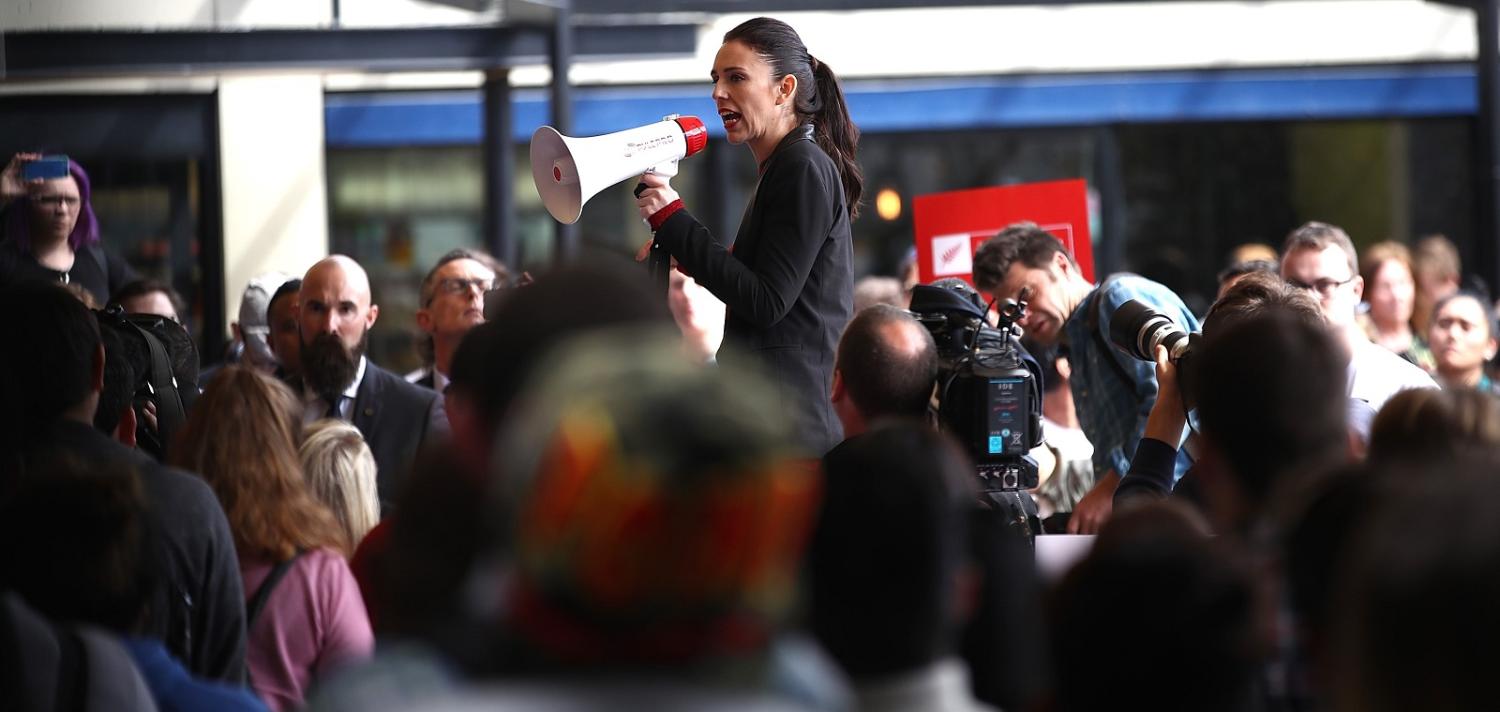New Zealand has not had a change election since 2008 when John Key swept into power. His reliable successor, Bill English, is locked in a tight contest with Labour’s charismatic new leader Jacinda Ardern. Whichever one of them ends up Prime Minister after Saturday’s contest will occupy the apex of a different New Zealand political landscape.
A fourth straight term for the National Party would not resemble the previous three. The consistently popular Key had the luxury of setting up coalitions with small and unobtrusive parties. But if most of the polls are to be believed, this election is the closest in years. To be able to govern, National would probably need to ask Winston Peters’ New Zealand First to make up the numbers.
Peters is more of a pragmatist in Cabinet than he is on the campaign trail. But his ambition would still make coalition negotiations tedious. His presence would test English’s authority for however long their shaky coalition might last. And New Zealand First’s populism will make it harder for National to champion free trade and investment and to maintain a welcoming attitude to economic migrants to New Zealand.
Even more change will be afoot if Ardern leads Labour to the victory that seemed impossible just weeks ago. Her party’s natural instincts will be to look left for coalition partners. But quite how many seats will be there is unclear. The Greens, whose political stocks have dived thanks to some self-inflicted wounds, are unlikely to be sufficient. Labour could also turn to the Maori Party which currently has a deal with National.
But Ardern might also have to court New Zealand First. Even if that didn’t prove necessary, a Labour-led coalition would have populist tinges. Not enough to make its young leader anything like New Zealand’s answer to Trump, an absurd suggestion that was quickly hosed down. But Labour wants to tighten immigration and investment by non-citizens to take the pressure off housing and infrastructure, especially in Auckland. And its leaders have also commented skeptically about aspects of the Trans-Pacific Partnership.
But we shouldn’t expect chalk and cheese differences in New Zealand’s international settings depending on who gets in. Labour may feel it owns the copyright to the idea that New Zealand has an independent foreign policy, which is often interpreted as policy autonomy from the United States. And there may be extra reasons for that in the Trump era. But Bill English has already taken the initiative by working with the new Administration while distancing himself at crucial moments from the new President.
The Key-English positions on China haven’t been miles away from Labour’s preferences either. New Zealand came on board early with Beijing’s Asian Infrastructure Investment Bank and One Belt One Road initiatives. An Ardern government would inherit the job of achieving a strengthened Free Trade Agreement with China. Labour might be a bit less likely to sign up to criticism of China’s South China Sea approach, including in cahoots with Canberra. But, depending on its coalition partners, Labour may be more likely to take an approach on human rights that displeases China. So things are about even there too.
In approaching Asia’s diplomatic challenges, National and Labour both favour inclusive multilateralism under ASEAN’s benign centrality. As that regional machinery creaked under the weight of US-China pressures and uncertainties, the Key-English government started to beef up some of New Zealand’s bilateral relationships in the region. While this has included Singapore and Japan, who are also very important partners for Australia, there is still a lot of work to do here.
The future appetite for this spadework is unclear. In thinking regionally, Labour is most comfortable dealing with the South Pacific. Not that this creates too much of a contrast, at least symbolically. National made Pacific Island concerns a big part of New Zealand’s Security Council campaign. And Murray McCully, who became one of New Zealand’s longest serving Foreign Ministers, often reached for Pacific issues.
Yet New Zealand’s immediate neighbourhood may offer two prospects for change under Labour. First, Ardern’s clever attempt to steal the Green’s climate change branding may bring with it some international activism. This would endear New Zealand with some of its Pacific colleagues at the same time as it distances Wellington’s approach from Canberra’s.
Second, Labour has signalled it will emphasise development assistance and be more sympathetic to arguments that aid is important for development’s sake. This too could work to Wellington’s benefit with its island partners.
Where this leaves defence is an intriguing question. Labour’s record here may surprise some Australian readers. Many of the capability enhancements continued under Key and English began with the Clark government’s more focused commitment to spending. National have since outdone this rhetorically with the promise of a large commitment to capital investment. But the real spending for this is still well off into the future.
Some important capability decision points are on the way for either an English or Ardern government. Both would be guaranteed to approve a replacement for the Hercules air transport. But if Labour wins the policy analyst writing the future capability requirement for maritime patrol will need to take care. It might be wise to avoid references to underwater capabilities and instead focus on requirements for the South Pacific and Southern Oceans, which both featured as headlines in the National government’s latest White Paper.
In terms of New Zealand’s military missions abroad, some change is possible, but more of a relative than an absolute kind. The Labour Party’s elder statesperson recently said that New Zealand should have drawn down its forces from Afghanistan much sooner than it did. But New Zealand has little more than a dozen personnel there now. Iraq may be trickier. Labour opposed the Key government’s decision to send trainers to Taji. Reducing this commitment might well appeal as one of those independent foreign policy motifs. But the New Zealand trainers are there as part of an Australian-led effort.
How NZ-Australia relations will fare
Which brings us to the Trans-Tasman relationship. Whether it is English or Ardern, National or Labour, New Zealand will continue announcing to the world that Australia is its one true ally. But the noisiest issue for that relationship in New Zealand politics has not been Iraq, Fiji, Trump, Xi, or terrorism. It has been the status of the many Australian-based New Zealanders who lack access to the federal government programs their taxes help pay for. This gap intensified recently when the Turnbull government decided kiwis would be treated as international rather than domestic students at Australian universities.
Andrew Little, the previous Labour leader, got on the trans-Tasman social welfare warpath to little obvious effect. Ardern may feel she needs to hold the Turnbull government to account. But it’s not clear what new leverage her government would have. This will remain a perennial hard ball get for New Zealand politicians.
There have been few contested possessions in this campaign for the heart and soul of New Zealand’s international relations. As Matthew Nicoll indicates, it has almost been a foreign and defence policy free zone. Much will depend upon what comes across Prime Minister English’s or Ardern’s in-tray.
Their predecessors certainly found that experience informative. John Key inherited the Global Financial Crisis and then got the Christchurch Earthquake. The strong commercial focus evident in National’s foreign policy is partly attributable to these challenges. Helen Clark inherited the East Timor deployment and then got 9/11, which triggered new operations with Australia and the United States respectively.
Bill English inherited New Zealand’s top job in between the vote for Brexit and Trump’s inauguration. These shocks have created a habitat less conducive for New Zealand’s commitments to an open trading order (promoted strongly by National), and to responsible internationalism (which would get more emphasis from Labour). But whatever happens once the votes are counted on Saturday night, it would be surprising if there are developments which show that New Zealand is no longer a voice for political moderation and international cooperation.

